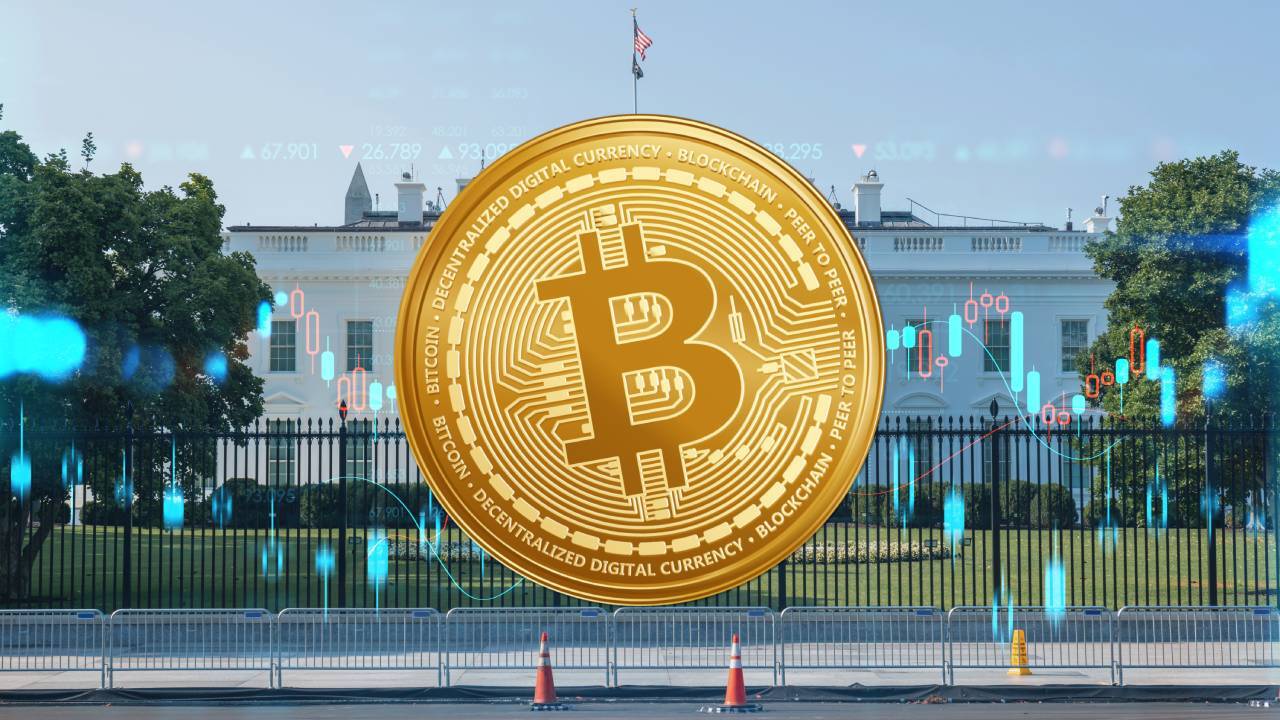Meta Title: JD Vance: Bitcoin Is a Hedge Against Inflation
Meta Description: U.S. Vice President JD Vance calls Bitcoin a hedge against inflation, sparking renewed debate on crypto’s role in monetary policy.
JD Vance’s Bitcoin Bet: Inflation, Trust, and the Rise of Crypto Politics
The Vice President of the United States just put crypto back in the political spotlight.
In a recent appearance on CNBC, Vice President JD Vance called Bitcoin and crypto “a hedge against skyrocketing inflation.” With this statement, he may have done more than just echo conservative sentiment — he might have crystallized a key pillar in America’s evolving relationship with digital assets.
Vance’s comments arrive at a critical moment. Inflation remains stubborn. The Federal Reserve’s tightening cycle shows signs of slowing, but Americans are still grappling with higher prices across the board — from groceries to mortgages. In this context, Vance’s framing of Bitcoin as a financial lifeboat isn’t just economic; it’s ideological.
But is Bitcoin truly a hedge? And if it is, what does that mean for U.S. policy, public adoption, and the future of dollar supremacy?
Why JD Vance’s Endorsement Matters
A shift in the Overton window
JD Vance is no fringe libertarian. He’s the sitting Vice President, a mainstream political figure with close ties to both Silicon Valley and conservative populists. His endorsement of crypto isn’t just rhetoric — it signals that Bitcoin has graduated from the margins to the center of American economic debate.
When a Vice President suggests that the dollar may not be trustworthy forever, it forces a conversation. Vance didn’t attack the dollar directly, but his subtext was clear: institutional trust is eroding. Bitcoin, by contrast, offers fixed supply, decentralization, and resistance to political manipulation.
Whether you agree or not, that message is resonating — especially among young voters and economically disenfranchised groups.
Bitcoin’s Role as an Inflation Hedge: Myth or Mechanism?
Does it actually protect purchasing power?
The idea of Bitcoin as an “inflation hedge” has gained traction in the past decade. But data offers a mixed verdict.
Gold has long been the go-to asset for inflation protection. It’s physical, scarce, and globally recognized. Bitcoin, by contrast, is volatile, digital, and barely two decades old. During periods of macro uncertainty, Bitcoin has sometimes correlated with risk assets like tech stocks — not traditional safe havens.
But its supply cap of 21 million coins remains a powerful narrative. And in countries suffering hyperinflation — from Venezuela to Lebanon — Bitcoin usage has surged.
U.S. inflation isn’t hyperinflation. Yet Vance’s comments suggest that, politically, the threshold for panic is lowering. If Americans believe the Fed is losing control, they may look to crypto as a psychological hedge — even if price performance doesn’t always follow.
The Political Calculus: Bitcoin as a Culture War Signal
From monetary policy to identity politics
Vance’s framing of Bitcoin taps into deeper political currents.
To many on the right, Bitcoin represents sovereignty, self-custody, and resistance to central authority. It’s not just money — it’s a protest. Vance is aligning with that sentiment, whether deliberately or not.
His comment also functions as a wedge issue. By embracing Bitcoin, he distinguishes the administration from Democratic critics who view crypto as a haven for tax evasion and crime. At the same time, he appeals to libertarian-leaning independents who feel alienated by both major parties.
This is strategy, not happenstance.
Crypto as policy litmus test
As 2026 midterms approach, candidates are increasingly tested on crypto stances. The question is no longer “Do you own Bitcoin?” but “Do you support financial self-determination?”
Vance’s position may lock the White House into a pro-crypto narrative — or at least force more nuanced policymaking.
Institutional Reaction: Signals from Wall Street and the Hill
Washington split on digital assets
Vance’s statement is already rippling through Capitol Hill. Senator Cynthia Lummis (R-WY), long a crypto advocate, praised the Vice President’s “bold recognition of Bitcoin’s role in financial resilience.”
Across the aisle, Senator Elizabeth Warren (D-MA) struck a different tone, warning that crypto remains “a shadow system ripe for exploitation.”
Meanwhile, the SEC continues its cautious dance. While ETF approvals for Bitcoin and Ethereum have expanded access, the regulatory framework remains fragmented. Gary Gensler’s team is pursuing enforcement, but critics argue that clarity is lacking.
Vance’s words add pressure. Can the SEC ignore a sitting Vice President’s open endorsement?
Wall Street watches closely
BlackRock CEO Larry Fink, who once dismissed crypto as a joke, now leads efforts to mainstream digital assets via institutional products. Fidelity, VanEck, and other giants are expanding crypto offerings — cautiously, but consistently.
If Bitcoin is to become a macro hedge, it must be investable at scale. Vance’s endorsement may accelerate that process.
Retail Sentiment: Americans Eye Bitcoin Anew
Google searches and wallet downloads spike
Following Vance’s comments, Google Trends recorded a 41% surge in U.S. searches for “Bitcoin inflation hedge.” Coinbase and Strike both reported above-average wallet sign-ups in the following 72 hours.
This suggests renewed retail interest — not just from traders, but from ordinary Americans rethinking savings strategies.
Banking mistrust fuels crypto appetite
In 2023 and 2024, regional banking crises (e.g., Silicon Valley Bank and Signature) shook public confidence. FDIC assurances helped, but cracks remain.
Against this backdrop, Bitcoin looks less like a gamble and more like an escape hatch. Vance’s language amplifies that perception. The idea isn’t to replace the dollar outright — it’s to opt out, quietly.
Can Bitcoin Really Scale as a Hedge?
Technical and economic limits
Bitcoin’s base layer processes about 7 transactions per second. Lightning Network and Layer 2 solutions offer speed, but adoption is uneven. As a hedge, Bitcoin doesn’t need to be Visa — but if millions rush in during inflationary shocks, congestion becomes a real issue.
Energy use remains a flashpoint. While many miners are pivoting to renewables, critics question the environmental cost of using high-power computation for financial abstraction.
Vance sidestepped these concerns. But if Bitcoin gains political legitimacy, the hard questions will follow — especially around infrastructure, custody, and systemic risk.
Global Echoes: What America’s Embrace Signals Abroad
Dollar dominance faces new tension
If U.S. leaders validate Bitcoin as a parallel store of value, other nations may follow suit — or push back.
China has already banned crypto in favor of its digital yuan. Europe remains split, with MiCA (Markets in Crypto Assets) providing some legal scaffolding, but still lacking cohesion. El Salvador and the Central African Republic have embraced Bitcoin officially, but their economies remain fragile.
Vance’s remarks will not go unnoticed. In a multipolar world, monetary trust is currency. Bitcoin now competes for that trust.
Bretton Woods 3.0?
Some analysts see digital assets as the scaffolding for a new global monetary order. Bitcoin, stablecoins, and CBDCs may all play roles.
By publicly endorsing Bitcoin, Vance opens the door to these larger questions. Does the U.S. intend to lead the next monetary era — or merely react to it?
Implications: Bitcoin, Inflation, and the 2026 Race
A referendum on money itself
If inflation remains sticky into 2026, Bitcoin could become more than a niche asset. It might become an election issue.
Voters who once focused on tax rates and health care may now ask: What happens to my savings? Who controls the money? Why should I trust them?
JD Vance’s comments plant seeds. Whether they grow into policy change or partisan firestorms remains to be seen.
But one thing is clear: crypto is no longer a sideshow.
It’s the arena.



Leave a Reply